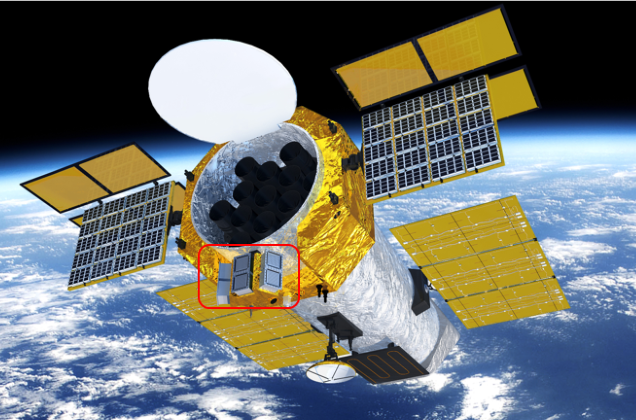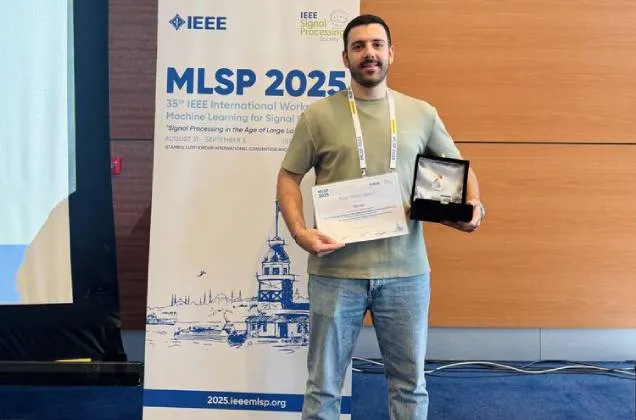16/02/2021
In light of the "Enhanced X-Ray Timing and Polarimetry Satellite, Wide Area Monitoring Application Software” project signed by Sabancı University, the Turkish Space Agency and TÜBİTAK Space Technologies Research Institute, Sabancı University will take part in software development and scientific activities for the research satellite. These activities will be conducted by the staff of Faculty of Engineering and Natural Sciences that hosts the High Energy Astrophysics Detectors Laboratory, the first laboratory in Turkey to design and produce space-born astrophysical instruments.
The protocol signed by the Turkish Space Agency, TÜBİTAK Space Technologies Research Institute, and Sabancı University, "Enhanced X-Ray Timing and Polarimetry Satellite Wide Area Monitoring Application Software" is one of the four important projects that will contribute to realizing Turkey's National Space Program and reaching the stated goals.
With the signing of this protocol, Sabancı University, with its expert staff in high-energy astrophysics instrumentation, data analysis, and embedded software will contribute significantly to the design and production of the eXTP satellite, and lead subsequent scientific activities before and after the launch.

The satellite body has a diameter of 4.7 m, a length of 11.5 meters and a weight of 4.5 tons
What is the EXTP Project?
The EXTP project is an X-Ray Satellite project that can not only detect celestial objects (black holes, neutron stars, gamma ray bursts) that make the most interesting and intense flashes in the universe, but can also investigate the structure of these objects spectrally, temporally and polarimetrically with giant observation instruments.
In the international project, the satellite platform will be produced by China and two of the four useful load will be carried out by China and two by European countries (European Space Energy-ESA). Phase A of this project is now complete and Phase B has started. Turkey will be involved in the project starting from Phase B. The Wide Field Monitor (WFM) is one of the four main observation instruments on the EXTP satellite which is still in the process of being designed and manufactured. The long-term goal of the work to be carried out in Turkey is to write the application code for this WFM and, in the process, ensure that Turkish scientists and engineers have an active scientific and technical role in the EXTP satellite.
Sabancı University will contribute to the project with its software writing expertise
Sabancı University and the Tübitak Space Institute are carrying out the project together by utilizing Sabancı University’s expertise in the technical and scientific aspects of the WFM sensor and the significant experience in satellite software and project management of Tübitak Space Institute.

Left: The structure of the WFM instrument.
Right: The WFM’s field of view of the universe is indicated in red
The field of view of previously transmitted satellites has been shown for comparison. From a scientific perspective, this project will familiarize all scientists working in the field of high-energy astronomy with the capabilities of the EXTP satellite and pave the way for them to utilize the satellite in their own research areas. This preliminary preparation will place Turkish scientists in the best position in terms of the scientific data input and broadcast input of the satellite, once it becomes operational.
The director of the project for Sabancı University, Prof. Dr. Emrah Kalemci, is developing smaller versions of the semiconductors on the eXTP at HEALAB, the laboratory which he founded. Dr. Kalem, who is responsible for coordinating the Turkish Team and the other country teams connected to ESA, is an expert in WFM-like coded mask systems and x-ray data analysis. University faculty members Associate Professor Dr. Ayhan Bozkurt and Associate Professor Dr. Ahmet Onat will support the project as the system engineers responsible for producing secure software. Prof. Dr. Ersin Göğüş, a Sabancı University faculty member and member of the EXTP Science Team, will take on the scientific side of the project in Turkey. He will be responsible for organizing workshops and similar events to inform Turkish scientists about the scientific capacity of the satellite. These events will be held in Turkey and will be organized in coordination with the Turkish Space Agency.




